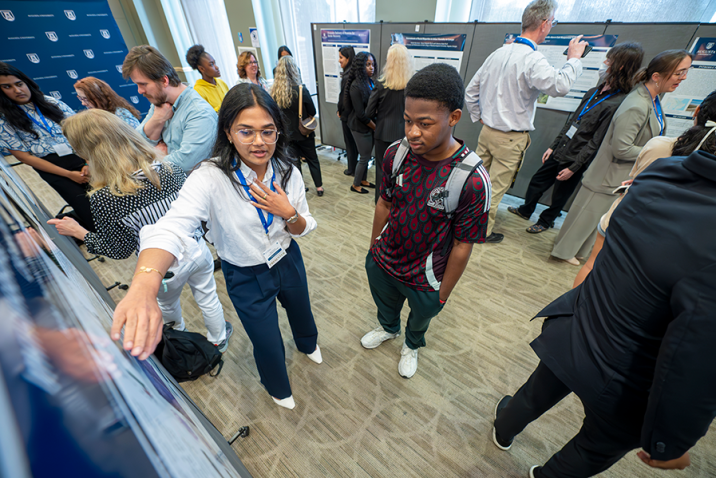Students shine during Undergraduate Research and Fine Arts Conference
“Some students have presented a number of times and are pretty well seasoned, and then there are students who are here for the first time,” says Quentin Davis, PhD.
The Augusta University Honors Program invites academically motivated and high-potential learners to apply to join our community!
Please note: Due to the curriculum constraints of the Honors Program and the Professional Scholars Program students are unable
to participate in both programs!
Honors Program
Summerville Campus
Students with a cumulative, unweighted high school GPA of 3.50 or higher, regardless of standardized test scores, will be considered for membership. We invite students with lower GPAs to apply. Even if we cannot admit you for your first semester, we can add you for your next semester if you achieve an AU GPA of 3.40 or higher.


The Augusta University Honors Program invites all current and new transfer students with at least twelve credit hours, but less than 45 credit hours, and a GPA of 3.40 or higher to apply to join our community of academically motivated and high-potential learners!
To access the Current Student Honors Program Application, you will need to log into the admissions portal. Your log in credentials will consist of a personal email and a password (the same ones used when you originally applied to AU). If you are unable to recall your password, select the Forgot Password option and follow the prompts. If you are unable to access your account or encounter difficulties, contact the Office of Academic Admissions at admissions@augusta.edu.
*Please note that your login credentials for the Honors Program application are not the same as your AU student account.

“Some students have presented a number of times and are pretty well seasoned, and then there are students who are here for the first time,” says Quentin Davis, PhD.

“This was a unique opportunity for the students because they are taking their research and explaining it to legislators,” says Deborah Jehu, PhD.

The 2025 Augusta University court elections open Monday, Feb. 17, and close at 11:59 p.m. Thursday, Feb. 20.

"It's one of the first publications as a lab we've produced, and it was kind of new because it took what we were doing in the fruit fly and combined that with computational work with Dr. Malmi-Kakkada,” says Paul Langridge, PhD.